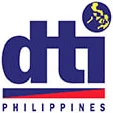Philippines to issue MLM companies with seals of legitimacy
 The Department of Trade and Industry has revealed plans to issue MLM companies with legitimacy seals.
The Department of Trade and Industry has revealed plans to issue MLM companies with legitimacy seals.
The seals aim to “protect consumers against trade malpractice”.
By issuing the Seal of Legitimacy, the DTI hopes to protect the public from becoming victims of companies that implement chain distribution plans or pyramiding scams that are prohibited under Article 53 of the Consumer Act of the Philippines.
The seal will be displayed in a conspicuous and visible place, as well in the company’s landing page on its website, where applicable, to be easily seen by the public.
This is a departure from the norm, wherein we only see regulatory intervention to bust pyramid schemes.
While I’m all for increased consumer protection, DTI’s approach to pyramid schemes introduces several issues.
As defined in Section 53 of the Consumer Act, a pyramid scheme
means sales devices whereby a person, upon condition that he makes an investment, is granted by the manufacturer or his representative a right to recruit for profit one of more additional persons who will also be granted such right to recruit upon condition of making similar investments.
Provided that the profits of the person employing such a plan are derived primarily from the recruitment of other persons into the plan rather than from the sale of consumer products, services and credit.
Provided further that limitation on the number of participants does not change the nature of the plan.
Section 53 goes on to add additional criteria, which it states doesn’t limit the primarily definition above;
(b1) revenues or income are derived from participants’ entry fees
(b2) in order to earn income, participants must sponsor a fixed number of other participants, each of whom must in turn sponsor a fixed number of participants as in a plan compensating participants balancing number of recruits than number of sales volumes
(b3) a participant’s income is dependent primarily upon the participant’s slot or position within the organization as determined by the time, date and order of participation
(b4) participants are not allowed to return marketable and unused products for refund within a reasonable period of time or the conditions for such product return are contrary to the provisions of the Consumer Act
(b5) there is no fair market value for the goods received … an indicator would be that consumers would still be willing to buy a product at its quoted price even without participating in the compensation plan
That last criteria is doing a lot of heavy lifting, as it’s the only one that factors in retail sales.
The rest of Section 53 will catch obvious pyramid schemes, but these days you’re more likely to run into a “bUt We HaVe PrOdUcTs!” variety.
These MLM companies do in fact have products. What makes them pyramid schemes though is the majority of sales volume is attributable to distributors participating in the MLM opportunity. I.e. there’s little to no retail sales activity.
As someone who reviews MLM companies, I know firsthand the work that goes into doing so thoroughly.
I get the impression DTI is just going to look for obvious signs. E.g. “Do you have a product? Great, here’s a seal of legitimacy for your website.”
The seal will be displayed in a conspicuous and visible place, as well in the company’s landing page on its website, where applicable, to be easily seen by the public.
This will in turn create a false sense of consumer security, with approved MLM companies that don’t have significant retail sales still operating as pyramid schemes (and by and large harming consumers).
The second issue is what happens to MLM companies that fail the test? Will DTI take further regulatory action?
And this leads into the third issue, DTI’s seal of legitimacy program is opt-in.
To apply, companies have to submit the following: certificate of registration issued by the DTI or Securities and Exchange Commission or Cooperative Development Authority; business permit/license applied with the local government unit; General Information Sheet or list of officers or members including their Tax Identification Number; certificate of Bureau of Internal Revenue registration; and compensation and marketing plan.
Pyramid schemes aren’t going to opt-in. Not having a seal might deter some people from joining – but if a seal is present then that brings us back to false confidence.
To ensure compliance, companies granted the seal would be subject to periodic and random audits.
DTI’s approach is better than nothing but I don’t believe is as effective as it could be.
DTI has already prepared a list of criteria companies that want to apply have to provide. Why not enforce that on any MLM company operating in the Philippines?
“Through the DTI Seal of Legitimacy, we hope to guide the public in choosing the direct selling and MLM companies they will engage with so they will not fall prey to pyramiding schemes masked as MLM,” Trade Undersecretary Ruth Castelo said.
Also seeing as these investigations are being done, maintaining a list on DTI’s website that explains why companies that have a seal passed DTI’s tests would be immensely beneficial for consumers.
It would also hold DTI accountable for bad decisions.
The Philippine SEC does a great job of regulating MLM securities fraud. Warnings are published that detail the SEC’s investigation into a company and why it is operating illegally.
DTI would do well to model itself on that approach.
Ultimately I suspect DTI’s scheme will be forgotten about but I’ll keep an eye out for any actual impact.

